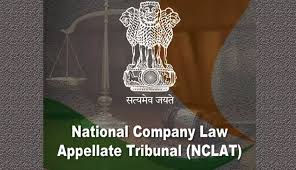Artificial Intelligence could be used for early resolution of matters, says NCLT President
It has disposed of about 62,000 cases out of about 83,000 cases filed before it, he added.However, he also added leveraging technology and filling up posts are two key factors in increasing the speed.Verma suggested that to enhance the effectiveness of IBC, the introduction of a cross border insolvency framework in the IBC is being considered.The Colloquium was attended by the Judicial and Technical members of all 15 benches of NCLT spread across the country.NCLT is a quasi-judicial authority is a quasi-judicial authority constituted under section 408 of the Companies Act, 2013.

- Country:
- India
New-age technologies such as Artificial Intelligence (AI) could be used for early resolution of matters, including insolvency cases, National Company Law Tribunal President Justice Ramalingam Sudhakar said.
While addressing a national-level colloquium of NCLT, Justice Sudhakar suggested that AI can be used in case of resolution, especially in the admission of cases, a statement issued by NCLT said.
''One aspect for early resolution is the development of Artificial Intelligence technology,” he said.“We are focusing on leveraging artificial intelligence and standardisation of processes. This will help in reducing delays. We are also focussed on evolving a code of best practices so that there is certainty in decision making,” said Justice Sudhakar.
According to Justice Sudhakar, India was envisioning a multi-trillion dollar economy.
''The bedrock in a nation’s economy is industry and commerce, which is governed by Company Law besides other laws,” he said.
NCLT President stated that the government has come out with a code to resolve corporate issues to enable corporates of India to compete with the world.
''NCLT is the guardian of the corporate law and each of the Members has a role to play in the economic growth of the country. Today’s Colloquium will address effective and judicial process and resolution,” he said.
The national-level Colloquium on the topic, “NCLT- The Road Ahead” was also addressed by Ministry of Corporate Affairs Secretary Rajesh Verma and Indian Bankruptcy Board of India (IBBI) Chairman Ravi Mital.
While IBBI Chairman stated that there are two cornerstones of the Insolvency & Bankruptcy Code (IBC) viz timelines in process and the control is given to creditors as against Debtors.
He stated that with more standardisation, the speed of resolution of cases can be increased.
MCA Secretary Verma said NCLT has performed commendably, particularly during Covid-19. It has disposed of about 62,000 cases out of about 83,000 cases filed before it, he added.
However, he also added leveraging technology and filling up posts are two key factors in increasing the speed.
Verma suggested that to enhance the effectiveness of IBC, the introduction of a cross border insolvency framework in the IBC is being considered.
The Colloquium was attended by the Judicial and Technical members of all 15 benches of NCLT spread across the country.
NCLT is a quasi-judicial authority is a quasi-judicial authority constituted under section 408 of the Companies Act, 2013. As of today, there are 15 benches spread across India which are manned by 48 Members who hear cases related to the Companies Act and the Insolvency and Bankruptcy Code 2016.
Out of a total of 83,838 cases filed before NCLT since its inception, 62,506 cases, which is around 75 per cent have been disposed of by the Tribunal as of February 2022.
The cases disposed of comprises 39,446 cases under the Companies Act and 23,060 cases under Insolvency Bankruptcy Code, 2016.
(This story has not been edited by Devdiscourse staff and is auto-generated from a syndicated feed.)
ALSO READ
India's Dominant Performance Overshadowed by Fielding Woes
Empowering Institutions: Devendra Fadnavis on Education Autonomy and India's AI Future
India beat Sri Lanka by eight wickets in first women's T20 International in Visakhapatnam.
India Rejects Bangladesh Media Claims of Security Threat
Sri Lankan National Arrested at India-Nepal Border










